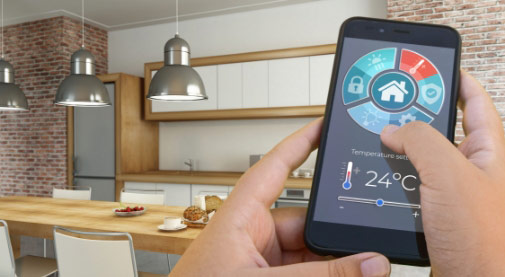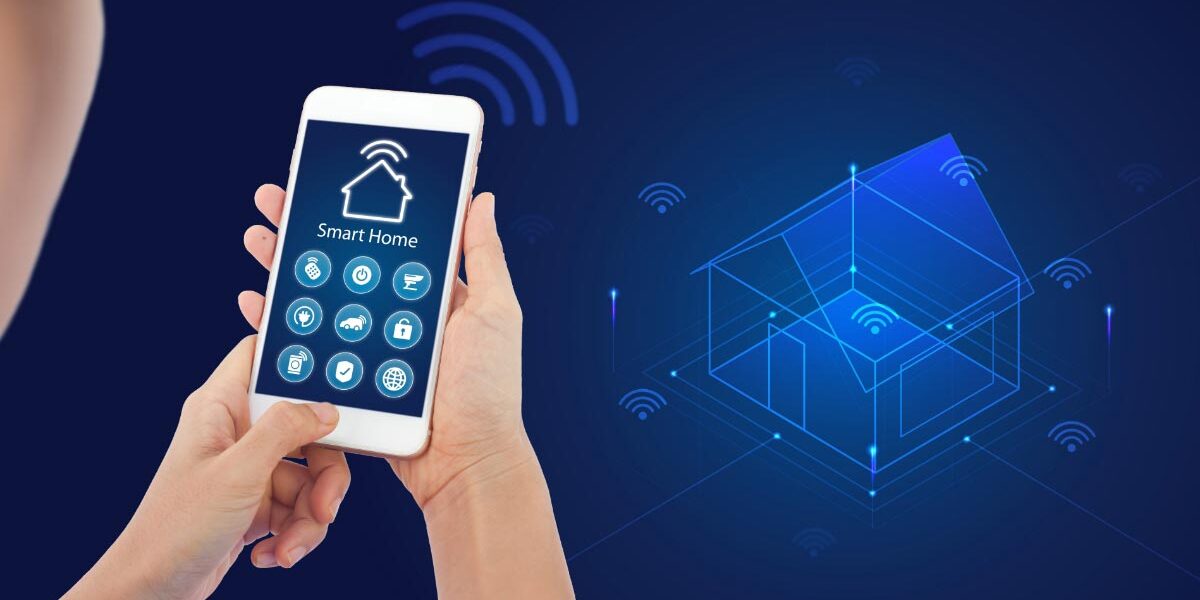Consumers have a lot of questions about the smart home industry. Customers frequently struggle when selecting a protocol because many standards and protocols are available to construct Smart Home Automation solutions. For instance, if we purchase a smart light for our already-existing smart home, we must ensure that it is compatible with the existing ecosystem. The new standard, Matter, aids in ensuring interoperability amongst all smart home appliances.
The Matter Smart Home Protocol: What Is It?
With the help of Matter’s wireless technology, gadgets may connect to the main smart home platforms, including Apple, Google, Amazon Alexa, and many others. The Smart Home gadgets can communicate across ecosystems because the Matter protocol gives them a common language. Currently, the Connectivity Standards Alliance, formerly the Zigbee Alliance, is in charge of overseeing Matter.
Threats from cyber-attacks considerably rise as the market for smart homes develops. Threats include remote control malfunction, data and privacy breaches, and DDoS (Distributed Denial of Service) assaults, all of which have the potential to be quite problematic. These issues are resolved by the matter protocol, which combines secure communication with device authenticity.
The Matter Smart Home Protocol: What Is It?

With the help of Matter’s wireless technology, gadgets may connect to the main smart home platforms, including Apple, Google, Amazon Alexa, and many others. The Smart Home gadgets can communicate across ecosystems because the Matter protocol gives them a common language. Currently, the Connectivity Standards Alliance, formerly the Zigbee Alliance, is in charge of overseeing Matter.
Threats from cyberattacks considerably rise as the market for smart homes develops. Threats include remote control malfunction, data and privacy breaches, and DDoS (Distributed Denial of Service) assaults, all of which have the potential to be quite problematic. These issues are resolved by the matter protocol, which combines secure communication with device authenticity.
Which Protocols is the Matter Protocol Supporting?
Ethernet, WiFi, and Thread (802.15.4) protocols are all supported by Matter. A border router is needed to link IP-based networks for thread devices.
The ZCL (Zigbee Cluster Library) is used by Matter as a data model to describe end node capabilities and roles through various cluster types and their attributes.
The commissioning process is necessary after the Matter protocol has been formally published and the user has installed matter accessories—such as smart bulbs, door locks, presence detection sensors, glass break sensors, etc.—in an existing Smart Home Ecosystem. A secure way to join the Matter network is through commissioning.
A Matter Controller, such as an Apple Home Kit app, an Android CHIP app, or a Unix/Linux-based CHIP program, starts the commissioning process. The user can begin the commissioning process by scanning the QR code or pushing the matter accessory’s pairing button.
The current protocols used by Matter Controller throughout the commissioning process include Bluetooth Low Energy, Thread, and Wi-Fi. Device discovery, pairing, and network credential transfer all use Bluetooth Low Energy.
The device then continues the authentication procedure to add the device to the Matter network before switching to Wi-Fi or Thread as a communication channel. The device is now Matter enabled and can be operated using a Matter controller once the commissioning procedure is finished.
Through a bridge platform, non-Matter networks like BLE Mesh, Zigbee, and Z Wave can connect to the Matter network.
Cloud connectivity is optional for Matter. Users can locally operate the accessory through a voice assistant, smart TV, or mobile application.
Benefits of Matter protocol
Interoperability:
Accessories with Matter capabilities will function in all ecosystems. Therefore, a Google Nest doorbell should function with an Amazon Echo just as easily in theory.
Apache License-compliant open source:
Since the Matter is open source, the code is available for free. Therefore, it gives developers complete freedom to create their applications under the Apache license.
To prevent unauthorized parties from simply accessing or tampering with the data transmitted between Matter devices, Matter adopts the best cryptographic standards for network connections.
Summing up
The Matter is not just another protocol for home automation. It is a standard that, by enabling well-established standards to work with one another smoothly, reducing ecosystem barriers, and laying the groundwork for Smart Home Automation solutions, has the potential to revolutionize the home automation industry significantly.



